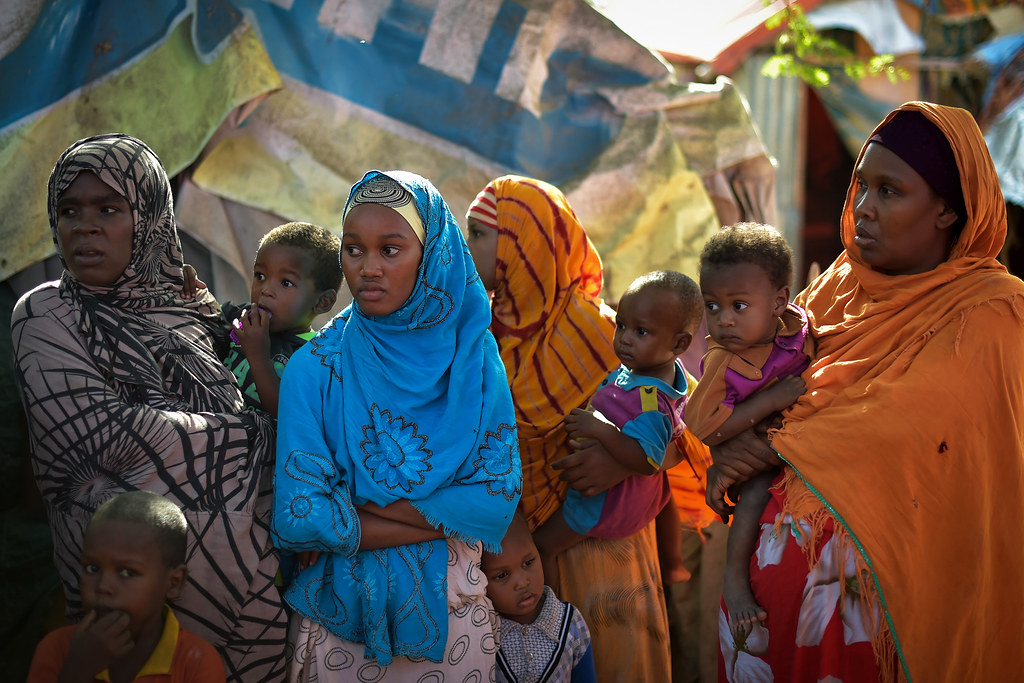The World Food Programme (WFP) has warned that up to 20 million people risk starvation following delayed rain in the Horn of Africa, made worse by lack of humanitarian aid.
The UN agency has warned that Somalia could face a famine in the next six months, whilst 7.2 million Ethiopians already face lack of food and around 1 million Kenyans are nearing malnutrition. The drought has affected 80% of Somalia.
The looming famine is thought to affect women and children, especially. Over 1.2 million children, and breastfeeding and pregnant women do not have access to life-saving nutrition assistance, leaving 300,000 children with moderate acute malnutrition putting them at risk of death.
Malnutrition in the East of Africa has been compounded by a measles epidemic, outbreaks of acute diarrhoea and poor access to clean water.
Even if the drought were to miraculously end soon, up to 11 million people would remain food insecure until September 2022.
The WFP’s Regional Director for East Africa, Michael Dunford, has stated the importance of early intervention in these crises, but says that a lack of funding for humanitarian aid has prevented such interventions. For instance, the Horn of Africa faced drought in 2016-2017 but scaled up funding and intervention, which prevented devastation in the region, saving millions of lives.
The UN Food and Agriculture Organisation (FAO) has described how consecutive years of minimal rainfall has worsened the drought in East Africa, leading to a deterioration of food security.
According to Dr Chimimba David Phiri, FAO Subregional Coordinator for East Africa, the drought has been most felt by households that raise their own livestock and tend to their own crop. In Ethiopia and across arid and semi-arid locations in Kenya, some 3 million livestock have died due to the drought with 30% of households’ herds dying in Somalia since mid-2021, as reported by Dr Phiri.
Speaking to journalists in Geneva, Dr Phiri also explained how conflict, rising food prices and the recent Desert Locust have worsened the growing crisis.
Additionally, the rising cost of food and fuel, brought on by the war in Ukraine, has impacted the Horn of Africa’s current problems. This is made worse by the fact that Ethiopia and Somalia largely depend on wheat imports from the Black Sea region, meaning the price of food baskets have soared. Ninety-percent of Somalia’s wheat imports are from Russia and Ukraine and the conflict in that region has led to the prices of wheat and oil rising by 300% in Somalia.
Dr Phiri commented on the FAO’s concern about how low the supplies of fertilisers coming from the Black Sea region are, too, adding that the war in Ukraine has moved attention away from the Horn of Africa. He called for people to support both efforts equally.
WFP appealed for funding in February 2022 to scale up intervention, but received less than 4% of the funds needed. In the next six months, $473 million is needed to help prevent further ruin.
The current lack of response mirrors the catastrophe in 2011, which saw high mortality rates, loss of livelihood and widespread displacement. Half a million people have already fled their homes in Somalia and many women and girls are now also at increased risk of suffering domestic abuse and other gender-based violence, including child marriage.
The risk of a famine needs to be thwarted now but clearly charity falls short in its erratic receiving of donations to fund those efforts. Only socialism can provide the assistance that’s needed when it’s needed.
Georgina Andrews is the Student Officer of the YCL



